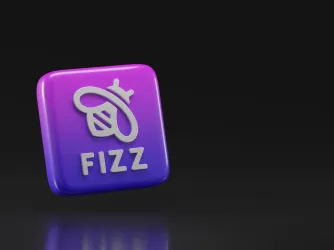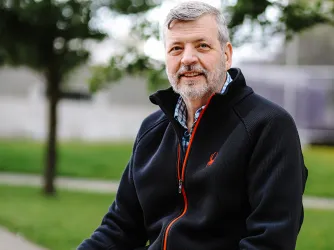Table of Contents
A conventional SJW's unconventional take on speech

Something dangerous is brewing on college campuses nationwide. Indeed, the sharp polarization between free speech and social justice advocacy is apparent to any student enrolled in college today. Some call it a liberal ideological hegemony. Some call it a justified fight against conservatism. All I know is that the relationship between free speech and social justice has been incorrectly painted as a false dichotomy.
For the past two years, I have experienced this dynamic first hand while attending the University of San Francisco. While receiving my education in a greater culture of social justice in the Bay Area, I have developed a better comprehension of our nation’s troubled history, more empathy for persons marginalized by our institutions, and a deeper understanding of my personal privilege. However, I am continually surprised by how often I am encouraged by both peers and faculty to make a decision between my commitment to social justice and my advocacy for free speech.
I first grappled with these values during pro-Trump protests at the University of California, Berkeley last year. In reflection, it must be made clear that the pro-Trump protestors won that day. As a violent counter-protest broke out, the marchers received exactly what they sought after: a platform to paint themselves as the persecuted minority. Why else would they march across the campus of one of the most liberal universities in the nation?
Understanding this dynamic, I refused to work to censor the protestors. As the clash of protests broke out directly outside a diner I sat in that day, I was surprised by how much anger was directed at me personally—simply because I refused to physically fight. At the home of the free speech movement, it was troubling to see such broad support for censorship.
I share this story because that was the first day I was confronted with the false dichotomy: Was it possible to oppose Trumpism while supporting the speech of those who didn’t?
Social justice is an area of thought that actually answers this question quite well. Today in the United States, more voices are incorporated than ever before in our nation’s messy history. The increase in both the number and diversity of individuals able to fully participate as citizens has provided space for the natural rise of intersectional thought. In other words, previously ignored perspectives integrate themselves into and make the populace question formerly understood “truths.” In his Washington Post piece titled Why ‘social justice warriors’ are the true defenders of free speech and open debate, scholar Matthew Sears takes this position, writing that “rather than constituting an attack on knowledge, the social justice lens reflects new ideas generated by academic disciplines and experts within them, and generally encourages expanding our knowledge and opening up subjects to new perspectives…” In a perspective-diverse society, stringent protections of individuals’ right to contribute to the conversation is fundamental to the survival of social progress.
The incorporation of new perspectives into spheres of dialogue is neither an easy nor a pretty thing to do. We begin to understand that the American experience varies wildly between individuals based on factors such as race, sexual orientation, and gender identity. On college campuses today, it has proven all too easy to scurry away from such hardship in the name of comfort. I was surprised in one of my classes when a professor, with overwhelming student support, segregated the class between students of color and white students in order to discuss white privilege in a more “comfortable” manner. Given that champions of civil rights shed their blood to have a seat at society’s table, it seemed disrespectful and patronizing for a person in a position of power to rescind that progress in an effort to create a more comfortable space.
In an environment where social justice and free speech are consistently framed as rival values, I urge students to consider the social justice movement as the natural offspring of our cultural dedication to free speech. The adversarial nature between free speech and social justice is a false paradigm; minorities and marginalized persons need enshrined protections to prohibit censorship by the voices of the majority. Freedom of speech endows the minority with the dignity to speak for itself. In fact, our protected right to share a voice is central to the human experience. In a 1994 interview, Mario Savio, the leader of the Berkeley free speech movement, stated, “Freedom of speech is something that represents the very dignity of what a human being is.... It is the thing that marks us as just below the angels.” As we move into an era marked by new respect for the human experience, it is vital that we continue upholding the values Savio and others like him dedicated their legacy to defending.
Ian Duke, a FIRE summer intern, recently finished his second year at University of San Francisco and will be attending Cornell University in the fall.
Recent Articles
Get the latest free speech news and analysis from FIRE.

FIRE's 2025 impact in court, on campus, and in our culture

The trouble with banning Fizz

VICTORY: Court vindicates professor investigated for parodying university’s ‘land acknowledgment’ on syllabus
